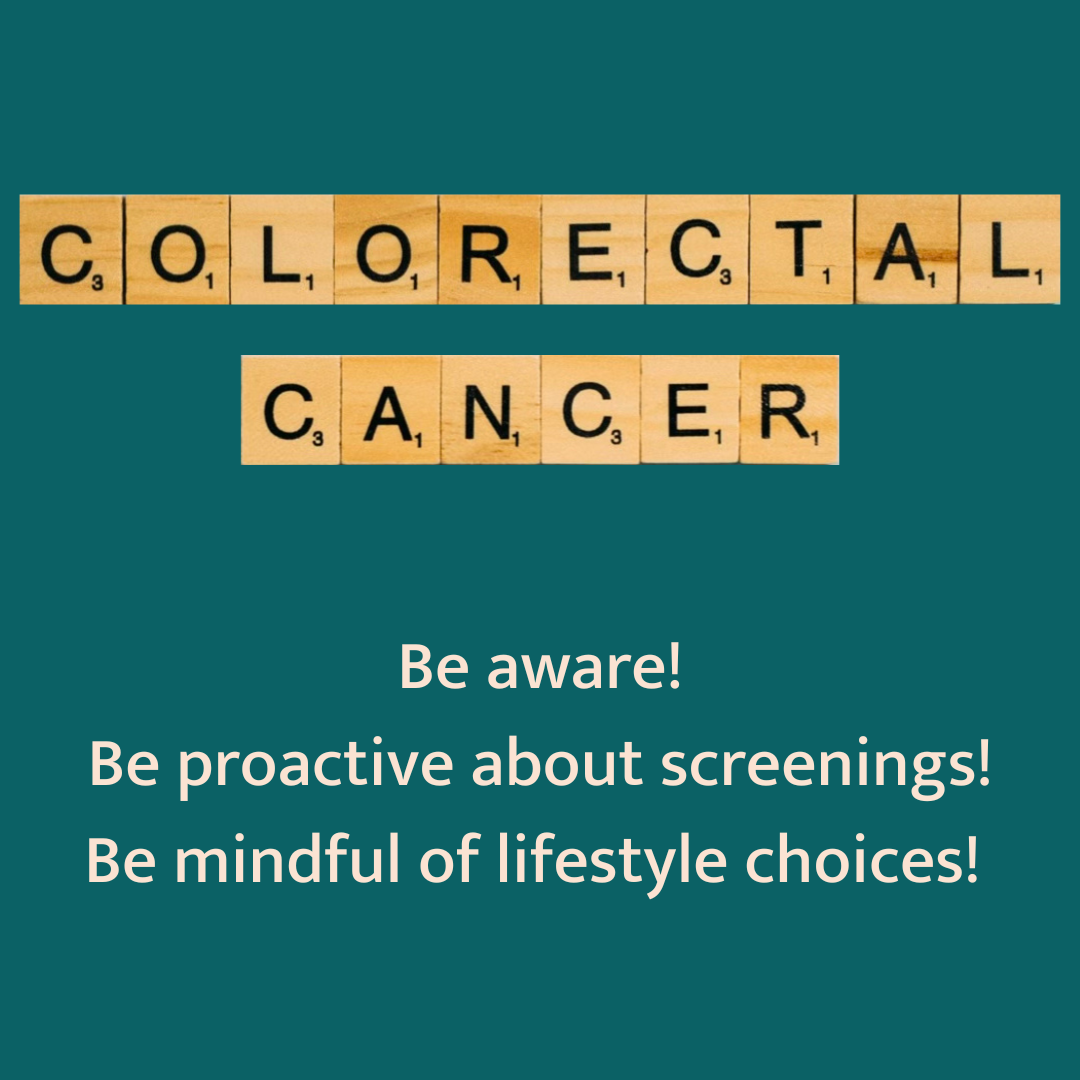Early detection saves lives
According to the WHO, colorectal cancer is the third most common cancer worldwide and the second most common cause of cancer-related death. The risk of developing colorectal cancer increases with age. However, the incidence could be reduced through preventive examinations and appropriate early detection (already relatively well established in high-income countries). Unfortunately, cases of early-onset colorectal cancer, the occurrence of colorectal cancer before the age of 50, are increasing dramatically (approx. 10% of all newly diagnosed cases). Cases are expected to more than double by 2030. And even though the genetic background is more important in these cases (20%) than in later-onset colorectal cancer, an unhealthy lifestyle also seems to play a decisive role in this form of cancer. Although the exact causes of colorectal cancer are not clearly established, studies show that more than half of all cases could be prevented through a healthier lifestyle. Prevention is therefore very much in our own hands (1, 2, 3, 4).
Know the symptoms
Any changes in the area of digestion and stool should be taken seriously!
In the early stages of colorectal cancer, those affected usually have no symptoms. Later they may experience
* digestive problems
* alternating diarrhea and constipation
* abdominal pain
* flatulence
* blood in the stool
* fatigue coupled with low iron levels
* weight loss for no apparent reason (2, 5).
Practical tip:
If you have had blood in your stool in the last 3 weeks or your stool has changed in any other way, make an appointment with your doctor!

What should I pay attention to and what can I do myself?
As already mentioned, age plays a role as a risk factor. In addition, genetic predispositions (e.g. Lynch syndrome) and previous illnesses (e.g. other cancers, chronic inflammatory bowel disease, intestinal polyps) increase the risk of developing the disease. But there are also numerous factors that can be changed or avoided:
* western diet (highly processed foods, lots of meat, little fruit & vegetables – overall high in sugar and saturated fat, as well as animal protein, but low in fiber, vitamins and micronutrients)
* lack of exercise or a predominantly sedentary lifestyle
* overweight or obesity
* smoke cigarettes
* excessive alcohol consumption (3, 6).
And what role does my gut microbiome play?
The gut microbiome is important in connection with colorectal cancer, both in its development and in diagnosis and therapy. How could it be otherwise – directly on site and beyond that through various axes with the whole body in close communication.
The metabolites of the gut microbiome can play both a protective and a harmful role, depending on how well the gut microbiome is balanced and the intestinal mucosa is intact. If the gut microbiome becomes unbalanced (dysbiosis), this can lead to inflammation and the formation of carcinogens. Parts of the intestinal mucosa can thicken and form polyps, which can change over time. Additionally, an imbalance in the gut microbiome can promote the progression of colorectal cancer. Colorectal cancer does not develop overnight, but over years. Still, don’t waste time (4, 7).
2 birds with one stone
The above-mentioned risk factors not only increase the likelihood of developing colorectal cancer, but also the risk of dysbiosis of the gut microbiome.
A lifestyle with a balanced, fresh, plant-based diet, rich in fiber and Ω-3 fatty acids, regular exercise and avoiding smoking and only moderate alcohol consumption is definitely worth it – to support the gut microbiome and to reduce the risk of developing colorectal cancer.
In order to function optimally and effectively support us in our daily challenges, our gut microbiome also needs rest and relaxation in the form of quality sleep, relaxation techniques and stress management (8, 9).
“Let food be thy medicine and medicine be thy food” (Hippocrates)
And in the words of Dame Deborah James, who has been such an incredible person, inspired so many people and helped countless people with her Bowelbabefund initiative:
“find a life worth enjoying; take risks; love deeply; have no regrets; and always, always have rebellious hope. And finally, check your poo – it might just save your life.”
Gutmore does not replace a visit to the doctor and does not provide a fecal occult blood test.
But you can have your gut microbiome analyzed by us. And we can also work together to adapt your lifestyle so that it positively influences your gut microbiome and optimally supports you in your daily challenges.
Interested? Contact us!
References
(1) Spaander, M. C. W. et al. (2023): Young-onset colorectal cancer, in: Nature Reviews Disease Primers 9, 21. https://doi.org/10.1038/s41572-023-00432-7
(2) WHO (2023): Colorectal cancer https://www.who.int/news-room/fact-sheets/detail/colorectal-cancer
(3) Sedlak, J. C. et al. (2023): Metabolism and Colorectal Cancer, in: Annual Review of Pathology: Mechanisms of Disease 18: 467-492.
(4) Sinicrope, F. A. (2022): Increasing Incidence of Early-Onset Colorectal Cancer, in: The New England Journal of Medicine 386: 1547-1558.
(5) Hamilton, W., Bailey, S. E. R. (2023): Colorectal cancer in symptomatic patients: How to improve the diagnostic pathway, in: Best Practice & Research Clinical Gastroenterology 66 https://www.sciencedirect.com/science/article/pii/S1521691823000227
(6) Lewandowska, A. et al. (2022): Risk Factors for the Diagnosis of Colorectal Cancer, in: Cancer Control 29:1-15. https://doi: 10.1177/10732748211056692.
(7) Liu, Y. et al. (2023): Gut Microbiome in Colorectal Cancer: Clinical Diagnosis and Treatment, in: Genomics Proteomics Bioinformatics 21: 84-96.
(8) Zheng, Y. et al. (2022): Let food by thy medicine: the role of diet in colorectal cancer: a narrative review, in: Journal of Gastrointestinal Oncology 13(4): 2020-2032.
(9) Baena R., Salinas P. (2015): Diet and colorectal cancer, in: Maturitas 80(3): 258-264.